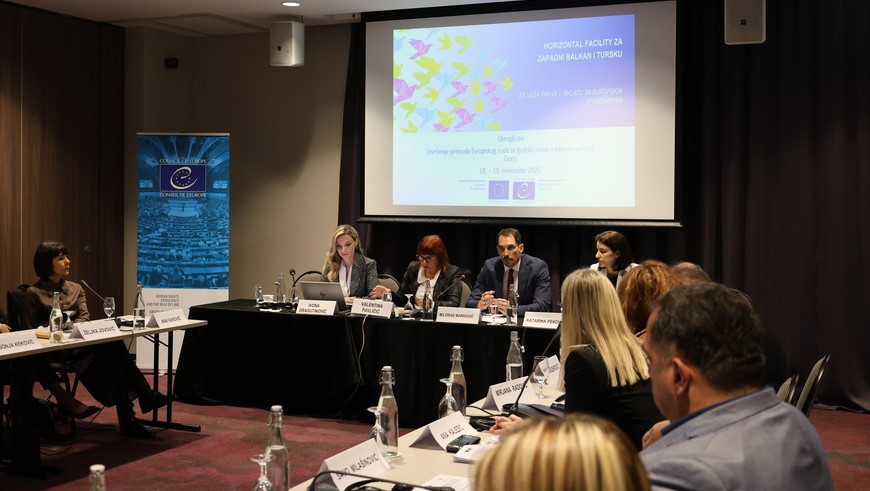A two-day roundtable “Execution of the Decisions of the European Court of Human Rights (ECtHR) in Relation to Montenegro” brought together state authorities, judiciary members, prosecutors, and other public institutions to discuss key aspects of implementing ECtHR judgments.
Organised jointly by the Office of the Representative of Montenegro before the European Court and the Council of Europe Programme Office in Podgorica, through the joint European Union and Council of Europe programme “Horizontal Facility for the Western Balkans and Türkiye,” the event focused on strengthening institutional mechanisms and inter-institutional cooperation.
The roundtable programme was divided into two thematic sessions: civil-law topics and criminal-law topics, with the aim of addressing key national-level challenges in executing judgments of the European Court. The discussions focused on issues such as bankruptcy, expropriation and restitution procedures, the duration of detention, the reasoning for detention decisions, and the implementation of the recommendations of the European Committee for the Prevention of Torture and Inhuman or Degrading Treatment or Punishment (CPT).
Ms Clare Brown, Head of Division, and Mr Nedim Kulenović, Legal Adviser from the Department for the Execution of the Decisions of the European Court of Human Rights, contributed their expertise to support discussions and share insights on aligning national practices with European human rights standards.


